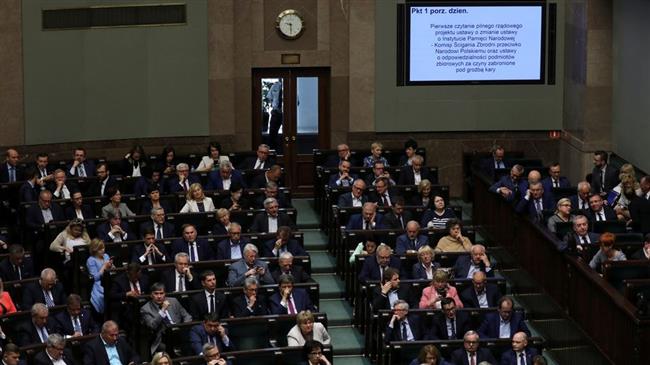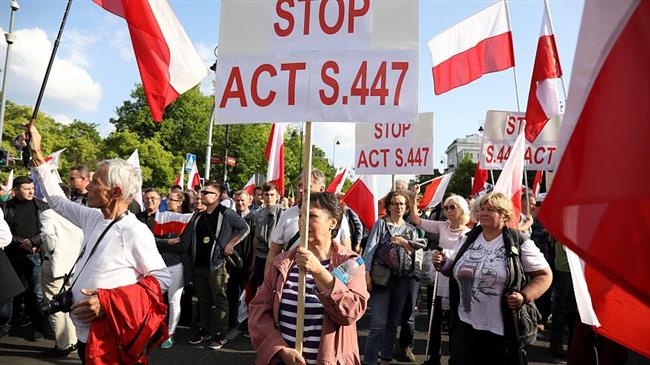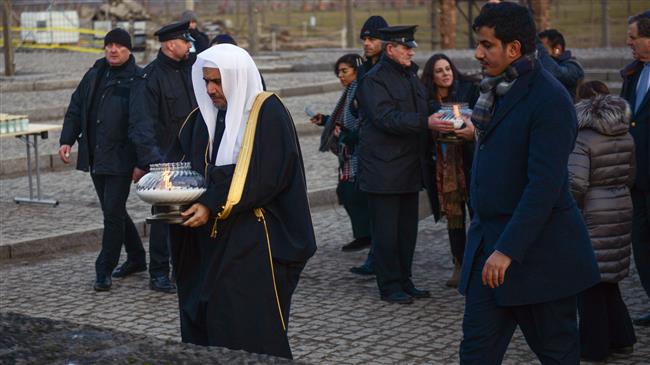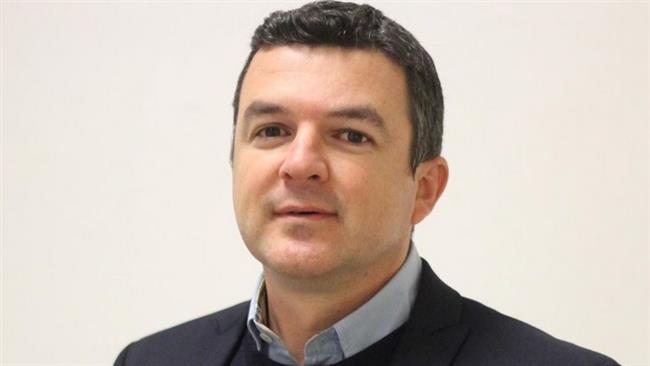Israel, Poland embroiled in escalating row over Holocaust restitution law
Poland and Israel are embroiled in an increasingly bitter diplomatic row over a Polish legislation that critics say would make it more difficult for survivors of the Holocaust to recover property allegedly seized by the country's Nazi occupiers during World War II and then kept by post-war communist rulers.
On Thursday evening, the Sejm, the lower house of Poland’s parliament, passed the bill with 309 votes in favor, zero votes opposed and 120 abstentions. The new law sets a 30-year deadline for Jews to recover property seized by Nazi German forces, essentially preventing any World War II-era compensation claims or appeals of past decisions, according to Polish state news agency PAP.
The legislation still has to be approved by the Polish Senate and signed by President Andrzej Duda before entering into force.
Israeli Foreign Minister Yair Lapid has slammed it as “immoral and a disgrace.”
In response, Polish Prime Minister Mateusz Morawiecki has hit back at Lapid’s claim.
“I can only say that as long as I am the prime minister, Poland will not pay for German crimes: Neither zloty, nor euro, nor dollar,” Morawiecki said in response to a question at a press conference on Friday about Lapid’s comments.
The Israeli foreign ministry summoned Polish Ambassador to Tel Aviv Marek Magierowski on Sunday to express its disapproval over the law.
Poland also summoned Israel’s envoy to the European nation amid the dispute.
Polish Deputy Foreign Minister Pawel Jablonski said Warsaw summoned Tal Ben-Ari Yaalon, Israel’s charge d’affaires, in order to “explain to her in a decisive and factual way what it’s about,” Jablonski told state television TVP.
Jablonski noted that Israeli criticism was “inappropriate” and “we hope that the approach of the Israeli side will change.”
He said critics in Israel “refer to the issue of the Holocaust, which this law does not address in any way. This demonstrates, I have the impression, a lack of knowledge of the facts.”
“This law is not aimed against anybody,” Jablonski said, adding that “the political debate in Israel is dominated by views that are either critical of Poland or are simply anti-Polish.”
The Israeli embassy in Warsaw tweeted on Thursday that “the immoral law” will seriously impact relations between Tel Aviv and Warsaw.
Poland’s foreign ministry responded on Friday and said the introduction of time limits would “lead to the elimination of fraud and irregularities, which occurred on a large scale.”
“The new regulations do not in any way restrict the possibility of bringing civil suits to seek damages, irrespective of the plaintiff’s nationality or origin,” it added.
Holocaust restitution in Poland is unpopular among many citizens, and Duda campaigned against it ahead of his reelection last year.
Many Polish citizens believe that claims should only be addressed to Nazi Germany and that it is unfair for Poland to pay out any damages from the Holocaust era.
“There won’t be any damages paid for heirless property,” the Polish president said last year. “I will never sign a law that will privilege any ethnic group vis-à-vis others. Damages should be paid by the one that started the war.”
‘No two-hour war’: Iran vows immediate retaliation to any attack
Pezeshkian: US must end provocations if it seeks genuine diplomacy
Iran summons German ambassador over Merz’s ‘low-minded’ remarks
Iran's Armed Forces warn EU of ‘consequences’ of IRGC designation
Iran FM: EU’s blacklisting of IRGC a ‘major strategic mistake’
EU blacklists IRGC in legally flawed move irrespective of consequences
VIDEO | Press TV's news headlines
VIDEO | Afghanistan opens first specialized cancer hospital



















 This makes it easy to access the Press TV website
This makes it easy to access the Press TV website